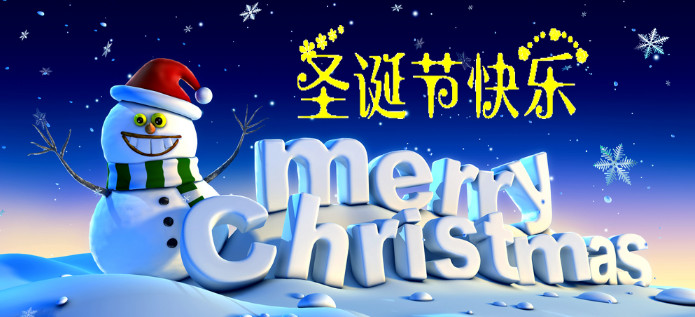How to Say Merry Christmas in Chinese
Posted by Julia Song 13252

December, you will see many Christmas decorations in China. For example, shopping malls might have pictures of Santa Claus, and hanging wreaths, red and green lights, and "Merry Christmas" signs in English. In this way, the appearance of Christmas in China is similar to Christmas that in some western countries, such as the United States. In addition, you will hear lots of Christmas music when you are out in public.
Some Chinese people give gifts during Christmas, but this is still not very common. It's also not common for Chinese people do decorate their homes for Christmas. Part of the reason is that most Chinese people live in apartments, not houses, so they can't hang Christmas lights outside. Another reason is that flashing lights are actually quite common as decorations outside many buildings; thus hanging extra lights for Christmas would not appear very special.
In the West Christians frequently greet each other by saying "Merry Christmas", "Happy Holidays", or other similar phrases. In China people sometimes do the same! You can practice by saying "shènɡ dàn jié kuài lè 圣诞节快乐!". But since many people are not Christian and therefore do not celebrate Christmas, it is common to simply greet others with "Happy Holidays", as it would be inappropriate to greet a non-Christian by saying "Merry Christmas".
But what is the literal meaning of the phrase "shènɡ dàn jié kuài lè圣诞节快乐!"? Perhaps you recognize the third character, 节jié, which means "festival." And you might know the final two, 快乐kuài lè, from 生日快乐shēnɡ rì kuài lè(happy birthday); together they mean "happy". The first character means "sacred" or "holy", and the second one means "birth". Thus the phrase could literally be translated as "Happy Sacred Birth Festival". Given the origins of Christmas, this is an accurate translation! However, remember that this is a religious expression and that not all foreigners living in China a Christian. So, in order not offend a non-Christian it is better to say "Happy Holidays."










